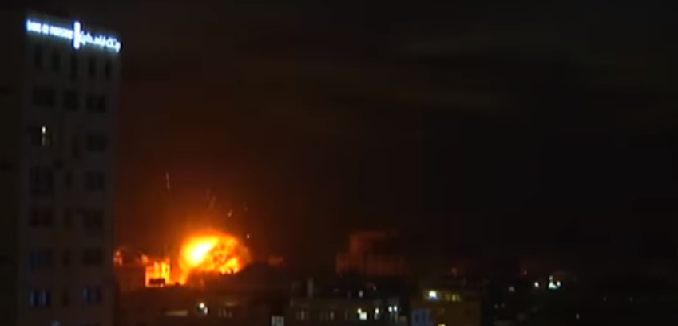The leader of Hamas in Gaza thanked the Iranian regime Thursday for sending weapons used by the Islamist terrorist organization to attack Israel.
“Iran provided us with rockets, and we surprised the world when our resistance targeted Beersheba,” said Yahya Sinwar, referring to the weekend of violence at the beginning of May, during which Gaza-based terrorist groups fired nearly 700 rockets at the Jewish State.
“Had it not been for Iran, the resistance in Palestine would not have possessed its current capabilities,” Sinwar stressed.
The Hamas leader then went on to warn that if Israel launches another operation against the group, which exercises complete political and military control over the Gaza Strip, terrorists would strike Tel Aviv and other cities with twice as many rockets.
The Israeli army estimates that Hamas has a stockpile of over 20,000 mortars and rockets, meaning that the terrorist group could fire projectiles at Israel for weeks.
The latest escalation marked the eleventh round of violence emanating from the Gaza Strip over the past year to which Israel has responded – and continues to respond – with immense restraint. Earlier this month, Israel and Hamas agreed to a six-month ceasefire.
However, the IDF has since reported an increase in terror balloon attacks from the Gaza Strip. Hamas-orchestrated riots at the Gaza-Israeli border also continue.
In an interview with Al Jazeera last year, Sinwar said that the point of the “Great March of Return,” the name Hamas has given to the riots, was “to turn that which is most dear to us – the bodies of our women and children – into a dam blocking the collapse in Arab reality.”
He described “the sacrifice” of Palestinian children “as an offering for Jerusalem and the Right of Return.” The use of civilians as human shields is a war crime under international law.
Sinwar also admitted that the Hamas-orchestrated border riots were a welcome distraction from the crushing failure of the main Palestinians political factions to arrive at a power-sharing agreement and to ease the dire economic situation in the coastal enclave.
[Photo: DW News / YouTube]




